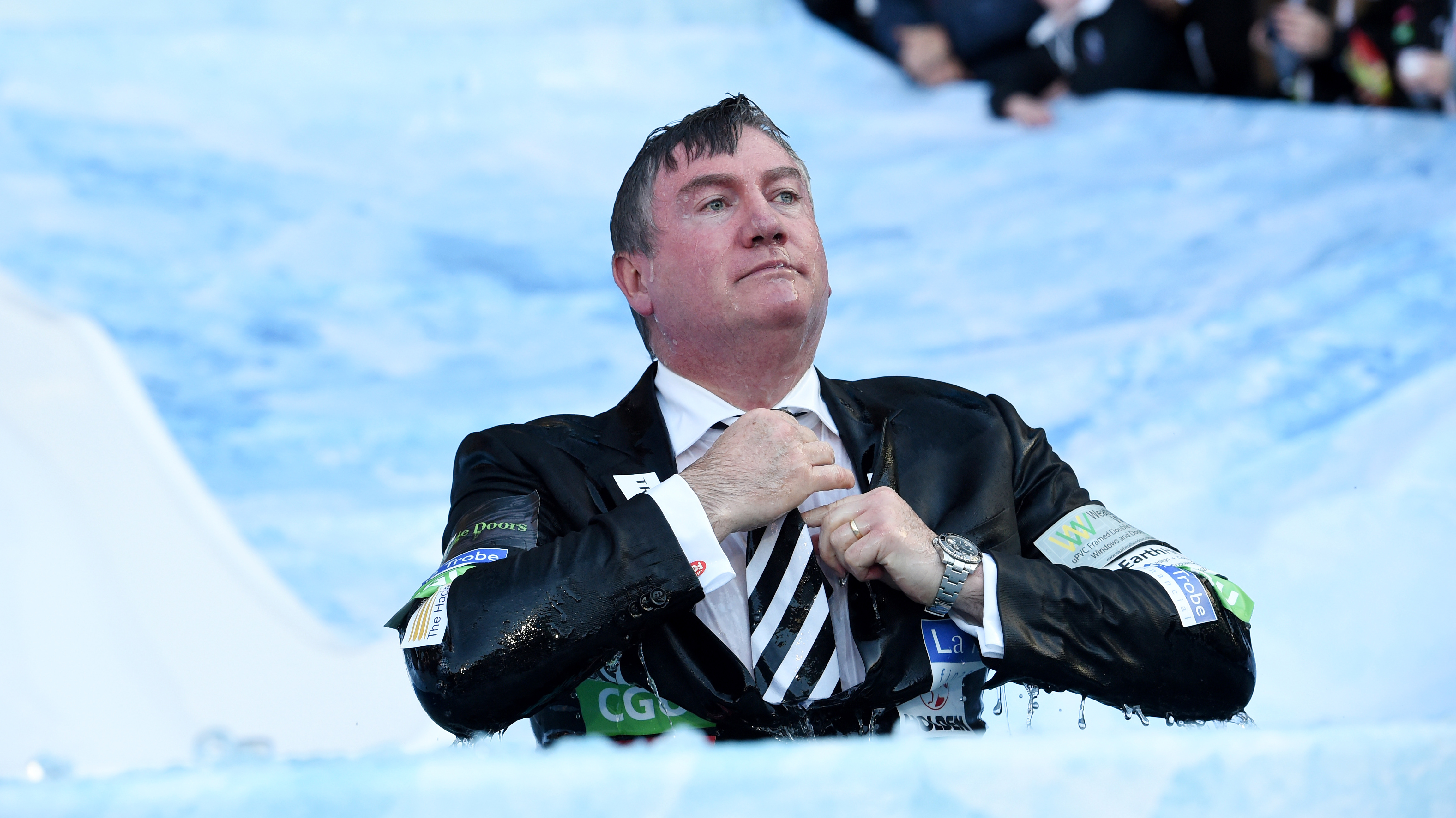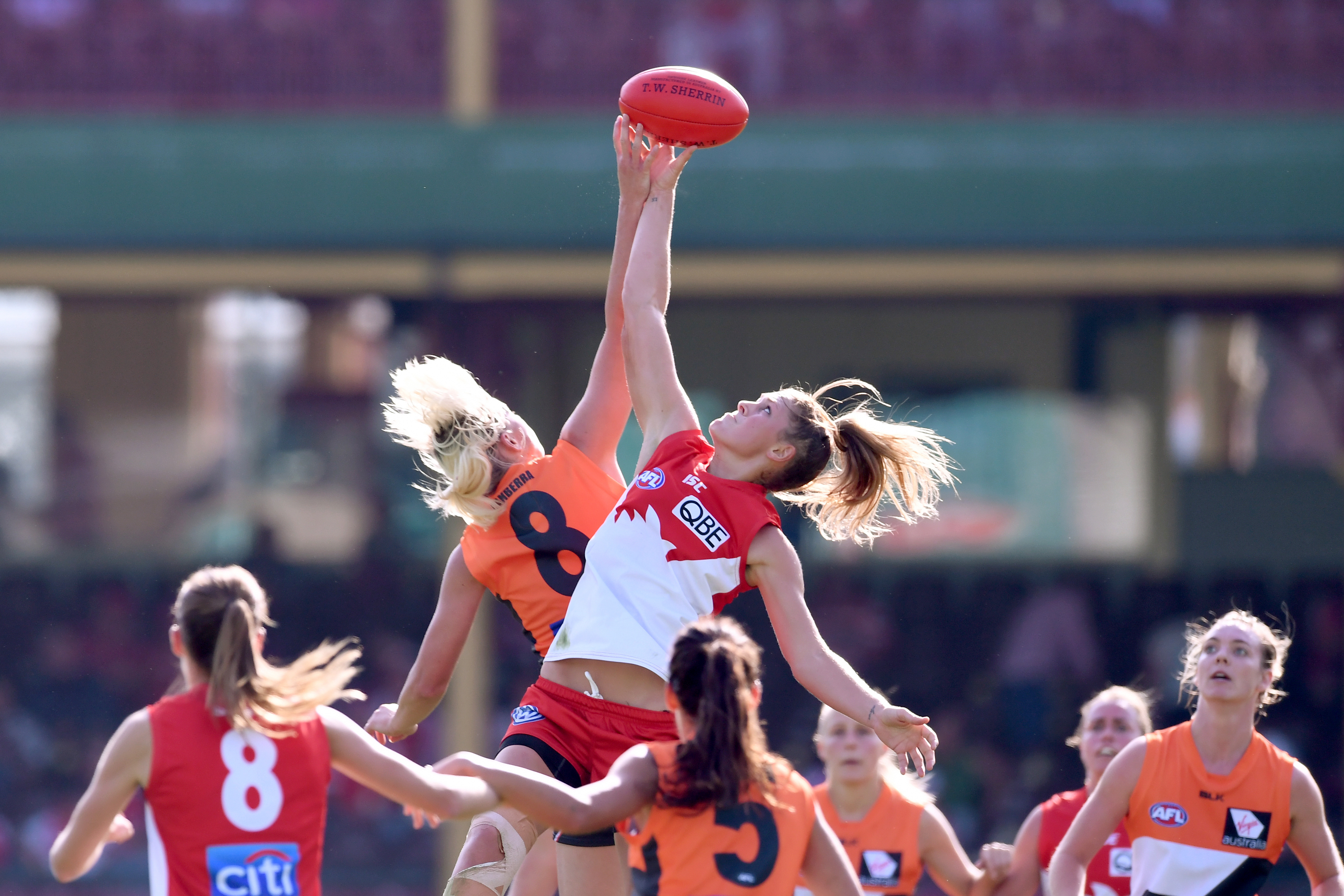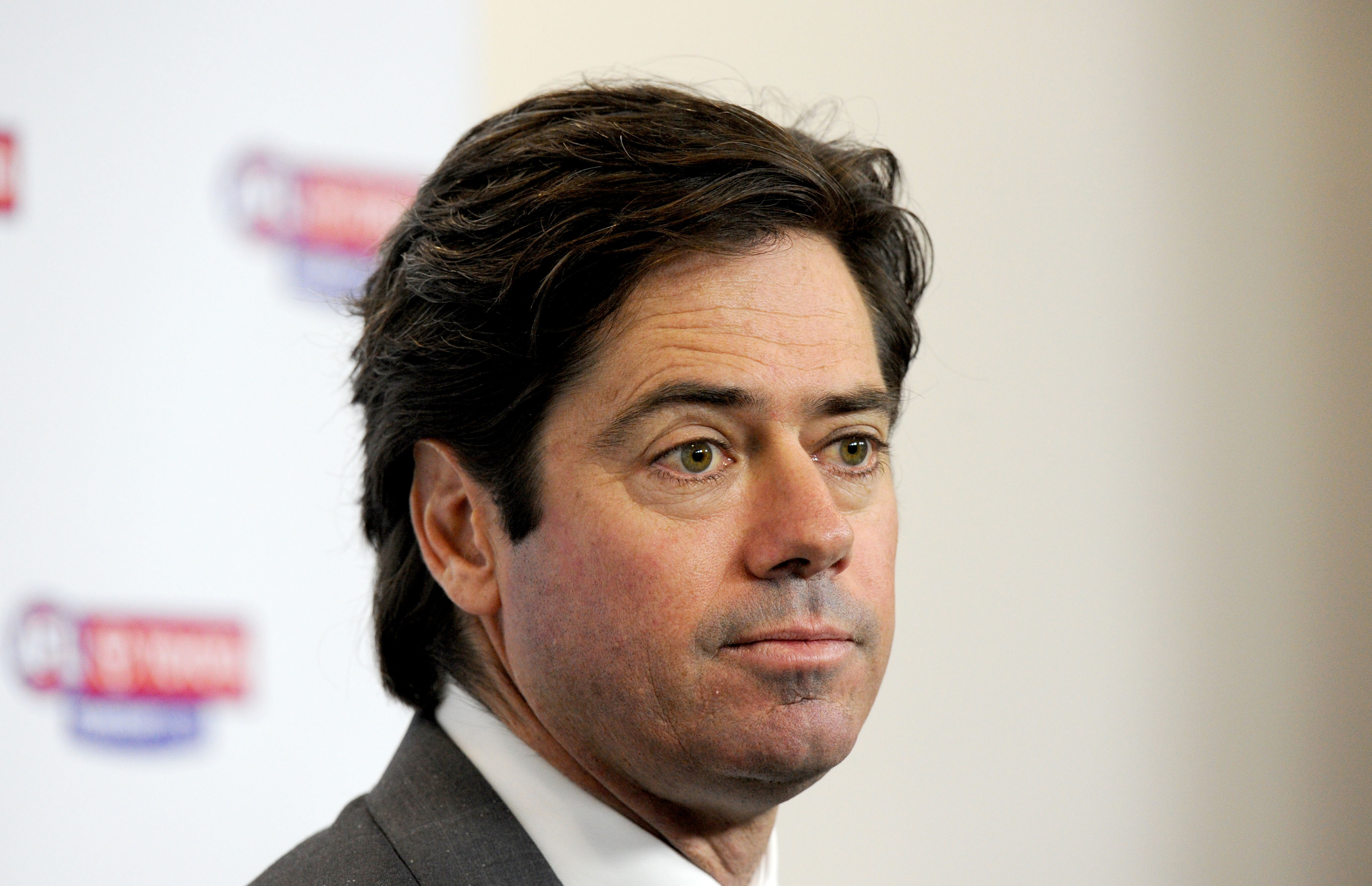Welcome to the club? Women in football

Misogynistic “banter” from AFL club presidents who should know better sends a 1950s message that to play with the boys still means being in the boys’ club
Published 21 June 2016
Last week the Australian Football League broke new ground when it named the eight teams for the inaugural 2017 AFL Women’s League. But a week is a long time in football.
“The establishment of a national women’s league will provide a platform to inspire young girls to reach for the stars…our game will never be the same,’’ AFL chairman Mike Fitzpatrick said at the time. The AFL had just joined with anti-domestic violence campaign Our Watch in committing to doing more to promote women and stand against violence towards women.
But the emergence this week of offensive radio comments from some of the game’s most influential voices has raised serious doubts about the readiness of the AFL and its clubs to provide a safe and supportive culture for female athletes.
Two club presidents, Eddie McGuire at Collingwood and James Brayshaw at North Melbourne, have egged each other on in what is a vitriolic attack on The Age’s chief football writer Caroline Wilson, ‘joking’ about drowning her.

Creating ‘jokes’ about a violent scenario aimed at the Walkley award-winning journalist is not only abusive towards Wilson, but also fails to recognise their leadership role as presidents. Or maybe in fact they do recognise the leadership role they play – promoting the boys’ club. The message is that any women who want to join the AFL must play by the boys’ rules and that demeaning attitudes and misogynist jokes are part of ‘our’ culture.
Their comments have led to an outpouring of vitriol on social media and talkback radio. One caller after another condemned Wilson as being overreactive, as being someone who can’t take a joke.
This is the leadership role that men of power and influence in the AFL play. If it is acceptable to them, it is acceptable for others.
They not only reflect the culture, they construct it as well.
It is commonly argued that the AFL engages millions of Australians in positive messages of social responsibility. But these comments from some of the game’s biggest leaders only undermine these messages and encourage people to minimise the impact of family violence.
The juxtaposition of McGuire’s and Brayshaw’s comments alongside the announcement of the Our Watch commitment and the fast-tracking of the women’s franchise into the AFL begs the question: what sort of ‘club’ are women being encouraged to join?
Caught in a time warp
McGuire and Brayshaw are men caught in a 1950s time warp, pulling the AFL brand back into a misogynist ‘men’s culture’ where any questioning or critique of male leaders is met with a crucifying attack. It is designed to silence, belittle and ridicule any call for cultural change. Those ‘champions for change’ within the AFL who are seeking a more inclusive culture fit for the 21st century have been seriously damaged in the past week by these ‘Neanderthal’ presidents ‘joking’ about bets on drowning a senior female journalist.
The project that is a more inclusive AFL culture has been further undermined by the weak stance taken by AFL CEO Gillon McLachlan in accepting McGuire’s initial ‘non-apology’ given Monday morning. McGuire’s response that “I am sorry those comments have resonated that way…” isn’t an apology. Simply saying he had been misunderstood was neither an apology to Wilson nor an acknowledgement that he had failed to provide leadership in providing a safe culture for women in the AFL.
Former player and coach Danny Frawley, who also took part in the ‘banter’ with McGuire and Brayshaw, was quick to make an actual apology. Not only has he personally apologised to Wilson, he also recognised and apologised for the wider damage he might have done: “(My comments) were inappropriate, they were unacceptable, and any comments that translate into or are seen as being violence against women are totally inappropriate.”

Violence against women occurs within this wider social context of attitudes, which legitimise abusive and humiliating comments as ‘just a joke’. It invites bystanders to join in on a group culture that continues to normalise disrespect towards women as part of ‘being a bloke’.
These attitudes ripple out into the community and create the fertile ground in which family violence can thrive. Sadly, there are women and their children who have actually been held under water as part of the intimate partner violence they have experienced. It is no joke to them. Let’s not forget that in 2007 Victorian man Robert Farquharson murdered his own children by drowning.
A throw away ‘laugh’ by commentators and AFL club presidents is heard throughout the community. It resonates and supports a toxic environment for women generally. It re-traumatises those women who have experienced this violence.
The question remains: what sort of club will be welcoming the new athletes into the women’s league?
Professor Humphreys and David Gallant are part of the Melbourne Research Alliance to End Violence against women and their children (MEAVe) at the University of Melbourne.
Banner image: Tracey Nearmy/AAP

